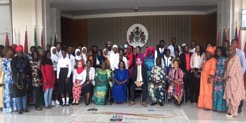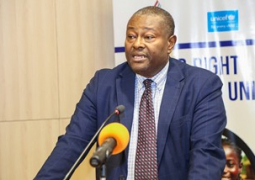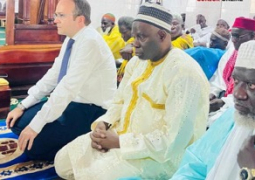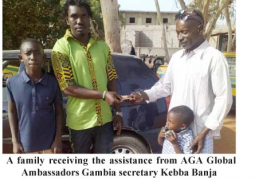
Speaking during the opening at the Sir Dawda Kairaba Conference Centre, the UNFPA country rep. Ndeye Rose Sarr, said The Gambia has made significant progress in closing the gender gap in primary education with 99% of girls finishing primary school as compared to 90.4% of boys, adding that only 48.2% of girls go on to complete secondary school.
She said in order to reach the sustainable development goals and realise the fulfilment of young people’s potentials, there is a need for an accelerated approach to build a safer world for women and girls, especially adolescents.
However, she pointed out that gender equality goes hand in hand with access to rights, choices and bodily autonomy. She continued that comprehensive sexuality education is also a stepping stone to achieving the three transformative results set by the UNFPA which are: zero unmet need for family planning, zero preventable maternal deaths, and zero gender based violence including harmful practices.
According to her, the consultation forum will strengthen the collective resolve for healthy and empowered adolescents in the country. She added that the launch of the Education Plus initiatives will provide the people with the right platform and framework to implement the recommendations that will emanate from the two-day stakeholders’ consultation.
Furthermore, she posited that the key components of the Education Plus Initiative’s approach include essential elements of what every adolescent girl and young people should be entitled to in transitioning to adulthood.
In addition, she , completion of quality secondary education; universal access to Comprehensive Education and Information (CEI); fulfilment of sexual and reproductive health and rights including a life free of HIV and AIDS; freedom from gender-based violence; school to work transitions and economic security and empowerment are the key components for the Education Plus Initiative.
Mrs. Naomi Williams, deputy permanent secretary of MoBSE, said through the national programmes such as sexual and reproductive health education, family life and HIV education, countries in West and Central African region aim to provide adolescents and young people with knowledge, attitudes skills and services that will enhance their health, wellbeing and empowerment.
She added that education on comprehensive sexual education has been identified as a key priority area in empowering adolescent girls to make informed choices and reaching their full potential in school and lives in totality.
“Adolescent girls are amongst the most vulnerable groups and must always be protected. Adolescent fertility comprises 15.9% of total fertility and is therefore linked with certain health and socio-economic problems.”
Moreover, she reiterated that since it takes a community to raise a child, grass root support is needed from parents, teachers, religious leaders, and the community at large to address issues around sexual education and sexual reproductive health rights.
Read Other Articles In National News





